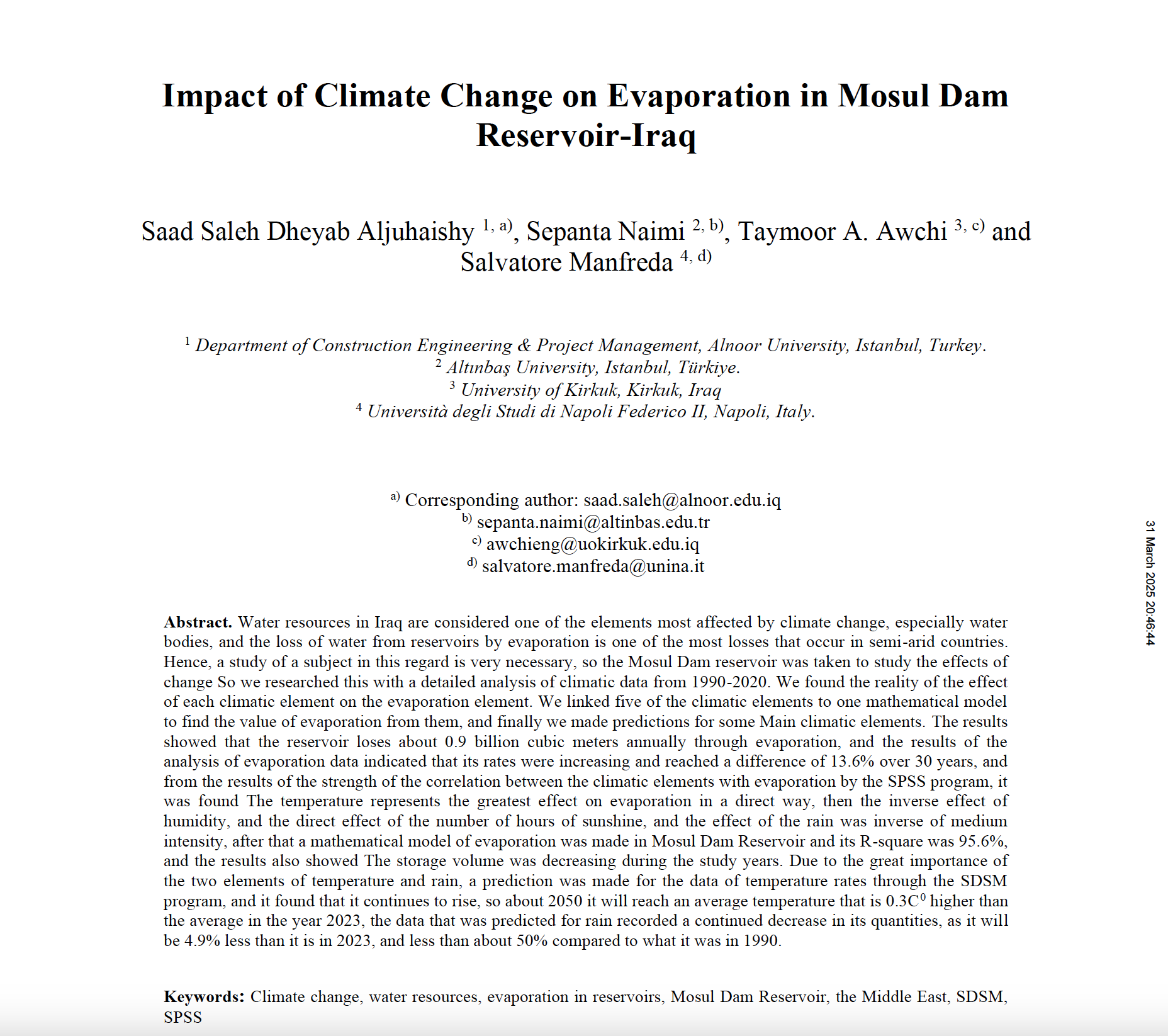Water resources in Iraq are considered one of the elements most affected by climate change, especially water bodies, and the loss of water from reservoirs by evaporation is one of the most losses that occur in semi-arid countries. Hence, a study of a subject in this regard is very necessary, so the Mosul Dam reservoir was taken to study the effects of change So we researched this with a detailed analysis of climatic data from 1990-2020. We found the reality of the effect of each climatic element on the evaporation element. We linked five of the climatic elements to one mathematical model to find the value of evaporation from them, and finally we made predictions for some Main climatic elements. The results showed that the reservoir loses about 0.9 billion cubic meters annually through evaporation, and the results of the analysis of evaporation data indicated that its rates were increasing and reached a difference of 13.6% over 30 years, and from the results of the strength of the correlation between the climatic elements with evaporation by the SPSS program, it was found The temperature represents the greatest effect on evaporation in a direct way, then the inverse effect of humidity, and the direct effect of the number of hours of sunshine, and the effect of the rain was inverse of medium intensity, after that a mathematical model of evaporation was made in Mosul Dam Reservoir and its R-square was 95.6%, and the results also showed The storage volume was decreasing during the study years. Due to the great importance of the two elements of temperature and rain, a prediction was made for the data of temperature rates through the SDSM program, and it found that it continues to rise, so about 2050 it will reach an average temperature that is 0.3C0 higher than the average in the year 2023, the data that was predicted for rain recorded a continued decrease in its quantities, as it will be 4.9% less than it is in 2023, and less than about 50% compared to what it was in 1990.
How to cite: Aljuhaishy, S. S. D., Naimi, S., Awchi, T. A., & Manfreda, S. (2025, March). Impact of climate change on evaporation in Mosul Dam reservoir-Iraq. In AIP Conference Proceedings (Vol. 3303, No. 1). AIP Publishing.
